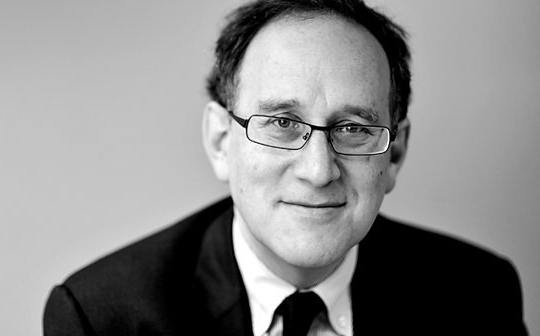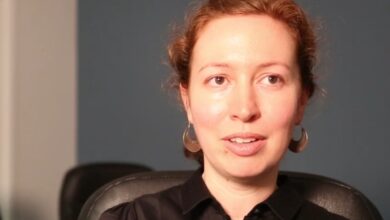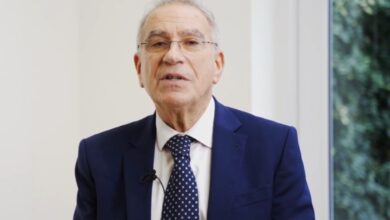Anthony Julius: A Renowned Lawyer, Advocate, and Scholar

Anthony Julius is a name that resonates in both the legal and academic worlds. With a career spanning over four decades, Julius has built an impressive reputation as a solicitor advocate, specializing in high-profile legal cases, advocacy for Jewish rights, and contributions to academia. His work has not only shaped the legal landscape but also impacted societal discussions on anti-Semitism, Holocaust denial, and Jewish heritage. This article delves into the life and achievements of Anthony Julius, examining his role as a lawyer, his academic contributions, and his advocacy work.
Early Life and Education
Born on July 16, 1956, in London, Anthony Julius comes from a family with a background in menswear retail. His early education was at the prestigious City of London School, where he excelled in his studies. Julius’ passion for literature led him to Jesus College, Cambridge, where he earned a first-class degree in English Literature in 1977. His academic journey did not end there; in the mid-1990s, he completed a PhD in English Literature at University College London (UCL), under the guidance of the novelist and academic Dan Jacobson.
Career as a Lawyer
Deputy Chairman at Mishcon de Reya
Anthony Julius joined the renowned London law firm Mishcon de Reya in 1979. Over the years, he rose through the ranks, becoming a partner in 1984 and eventually serving as the firm’s Deputy Chairman from 1997 to the present day. His legal expertise lies primarily in the fields of commercial litigation, defamation, international trade disputes, and media law. Julius has been instrumental in handling high-stakes cases, and his strategic approach has earned him a reputation as one of the best in the field.
As a solicitor advocate since 2001, Julius has been able to act as a barrister, representing clients in the High Court and the Court of Appeal. His legal prowess and commitment to his clients have made him a highly sought-after professional in the world of litigation.
Notable Legal Cases
Julius gained widespread recognition for his involvement in two landmark legal cases that shaped public discourse on Jewish identity, Holocaust denial, and the rights of individuals to protect their reputations.
- The Divorce of Diana, Princess of Wales: One of Julius’ most high-profile cases was his representation of Diana, Princess of Wales, during her divorce from Charles, Prince of Wales, in 1996. This case, one of the most publicized divorces in modern history, required a legal strategist of immense skill and discretion. Julius’ role in ensuring Diana’s interests were well-represented in this high-profile case further cemented his status as a leading solicitor advocate.
- Irving v Penguin Books and Deborah Lipstadt (2000): Another pivotal moment in Julius’ career came when he represented historian Deborah Lipstadt in a libel suit brought against her by Holocaust denier David Irving. Irving sued Lipstadt and her publisher, Penguin Books, after she described him as a “Hitler apologist” in her book. Julius, working alongside barrister Richard Rampton QC, successfully defended Lipstadt. The case, which ultimately vindicated Lipstadt’s claims and established a legal precedent against Holocaust denial, was depicted in the 2016 film Denial, with actor Andrew Scott portraying Julius.
Contributions to Academia
In addition to his work as a lawyer, Anthony Julius has made significant contributions to the academic world. He currently holds the Chair in Law and the Arts at University College London, where he teaches courses on Shakespeare, Immanuel Kant, and William Empson. His academic interests lie at the intersection of law, literature, and the arts, and his work has influenced both legal scholars and students alike.
Julius has also served as a visiting professor at Haifa University and Birkbeck, University of London, further expanding his influence in the academic community. His expertise in English literature and law makes him a unique figure in both fields.
Advocacy and Public Life
Beyond his professional achievements, Anthony Julius has been an outspoken advocate for Jewish rights and a critic of anti-Semitism. He played a significant role in opposing the academic boycott of Israeli universities, a movement that he saw as harmful to academic freedom and Jewish students.
Julius was also a founding member of the Engage group and the Euston Manifesto, both of which aimed to combat the rising tide of anti-Semitism on university campuses and in the broader political discourse. His involvement in these initiatives further reflects his commitment to ensuring Jewish voices are heard and protected in both academic and public spaces.
Diana, Princess of Wales Memorial Fund
In addition to his legal and advocacy work, Julius was a vice-president and co-founder of the Diana, Princess of Wales Memorial Fund. The fund was established following the tragic death of Princess Diana in 1997, and Julius played a key role in its leadership. He served as the fund’s first chairman until 1999 and continued to be involved as a vice-president until its closure in 2012.
Anthony Julius Books and Publications
Julius has written extensively on a variety of topics, particularly focusing on law, Jewish studies, and anti-Semitism. His academic publications and legal writings are highly regarded in both legal and scholarly circles. He has also contributed to a number of public debates, including co-authoring an article in The Guardian with historian Simon Schama in 2007, warning against the dangers of academic boycotts targeting Israel.
Julius’ written works offer insightful perspectives on legal, cultural, and social issues, and his contributions have significantly impacted both the legal profession and Jewish scholarship.
Personal Life and Family
Anthony Julius has been married three times. His first marriage was to Judith Bernie in 1979, with whom he had four children before their divorce. In 1999, he married Dina Rabinovitch, who tragically passed away in 2007 from breast cancer. Julius married Katarina Lester in 2009, and they have one child together. Julius is also a stepfather to Lester’s two children.
His children, Theo Raphael, Chloe Anna, Max Yoram, Laura Yael, and Elon Lev, are an important part of his life, and he has often spoken about the impact of family and personal experiences on his professional and academic endeavors.
Conclusion
Anthony Julius is a distinguished lawyer, academic, and advocate whose career spans multiple sectors. From his groundbreaking legal victories in high-profile cases to his academic contributions and activism, Julius has left a lasting impact on both the legal world and public life. His work defending Jewish rights, promoting academic freedom, and ensuring justice for the marginalized will continue to resonate for years to come.
Through his involvement in key cases, his scholarly work, and his advocacy for the Jewish community, Anthony Julius has built a legacy as one of the most influential figures in British legal and academic circles. Whether in the courtroom, the classroom, or through his written work, Julius continues to shape the future of both law and cultural discourse.



